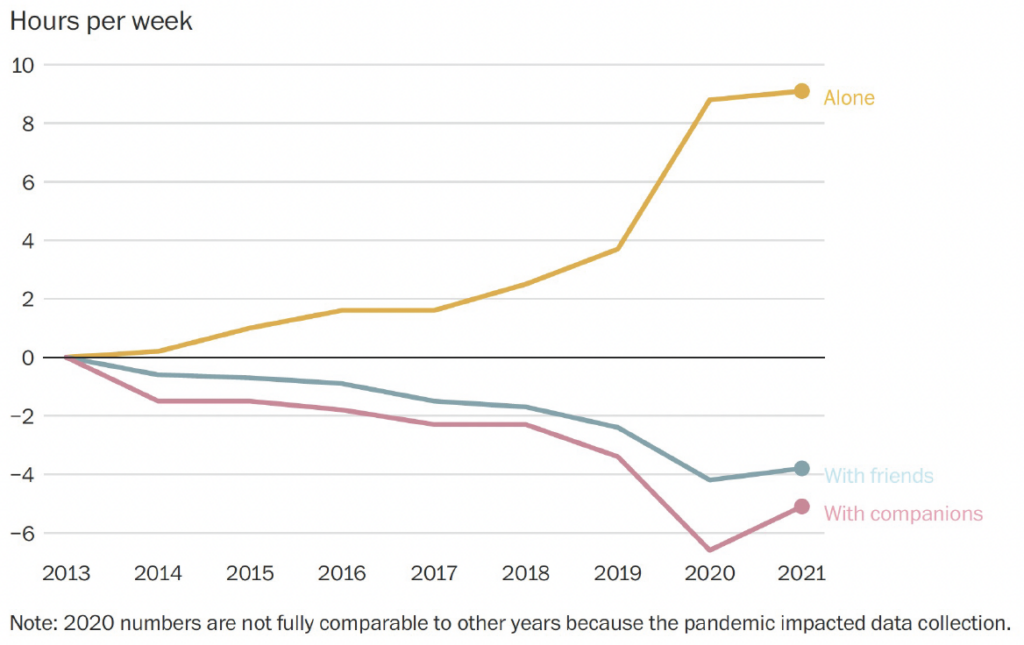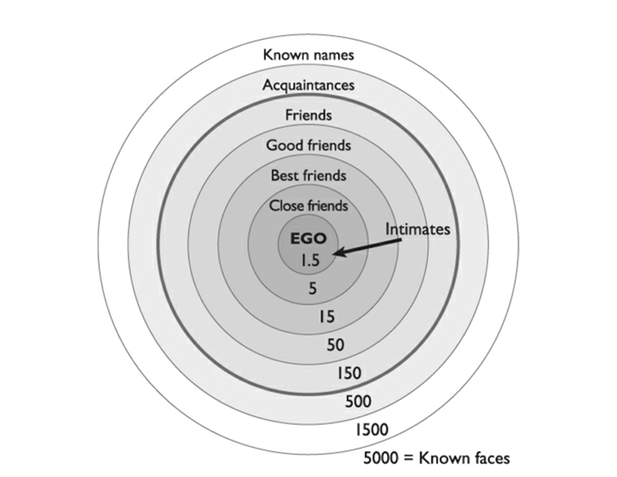Last week’s message included John Nehme (and the family of grackles!) providing an overview of the retreat and some commentary on the state of friendships in our society. In short, more people (men & women) are finding it harder to make and sustain friendships such that some believe we are facing a “friendship recession”.
This week’s message is on the opportunity and responsibility of making friends and the role of community to support friendships. Our society is increasingly designed without in-person social connection in mind. Grocery stores are funneling people towards self-checkout, modern housing design draws residents towards entertainment rooms and backyards instead of front porches and technology sucks us into virtual worlds at the expense of the real thing. Many of us are incessantly “busy” but not sure where the time goes. Data suggests that we’re spending more of that time alone: on average 10 hours per week by ourselves as compared to a decade ago.

We are spending an increasing amount of time alone, a trend that started before the pandemic Source: American Time Use Survey via Washington Post
Robin Dunbar is a British anthropologist and expert on friendship. He’s credited with “Dunbar’s Number”, a notion that there is a cognitive limit on human groups of about 150 individuals. In his framework, one’s friends are made up of a series of different types of friends ranging from close friends (~5 people), best friends (~10 people), good friends (~35 people), and friends more broadly (100) to arrive at his 150 figure. Research suggests that it takes chemistry (i.e., shared values, sense of humor and more), time and, often, proximity to make and maintain friends. The time element should not be overlooked: it takes more than 200 hours, ideally over a concentrated period of six weeks, for a stranger to grow into a close friend. Weekend retreats can provide an opportunity to get to know people on an accelerated basis.
To minimize the risks associated with today’s “friendship recession”, we need to be intentional about making friends. Time on our devices is time not spent with others. Being comfortable inviting others to get together (despite the risk of being rejected) and accepting invitations to gather (despite the risk of not enjoying it) are steps towards making friends. Is there anyone you should reach out to that you’d like to get to know better? Are you making time to spark new and maintain existing friendships? Do you have any friends that you’d like to become a better friend, perhaps even a close or best friend?

Dunbar’s Number” refers to the notion that we, on average, are able to maintain about 150 friends, but not every friend is equally important. Source: Friends:Understanding the Power of our Most Important Relationships by Robin Dunbar.
Community is important, too. When a community has a strong sense of belonging and a network of connected friendships, friendships have strength beyond a one-to-one relationship. These individual friendships benefit from a cluster of associated friendships that make it easier to stay in touch and feel emotionally connected not just to one friend but a multitude of friends.
Our family moved from Baltimore four years ago and while our church community was not as robust as we would have liked, I benefited from a strong cluster of interconnected male friendships. My friendship with Doug, for example, is stronger because we share friendships with Kurt, Carl, Andrew, Ted and several others. When Doug recently visited Austin, he updated me on the status of our friends in Baltimore and he no doubt updated the guys about my life upon his return home. Community can strengthen our friendships but it also requires us to seek out and become enmeshed in a community.
As John pointed out in last week’s video, we’re organizing the retreat to facilitate connection. We’re grateful that you have made the intentional decision to join us and are creating time to prioritize friend making and community.
I invite you to join us in prayer for our upcoming gathering. Please pray that our time together is an encouragement and opportunity to forge new connections and deepen existing friendships. Pray that each of us lean into this opportunity. Pray that the retreat is a step towards creating a greater sense of community and connection at Christ Church. Pray that these connections strengthen our calling as men of faith and friends of Jesus.